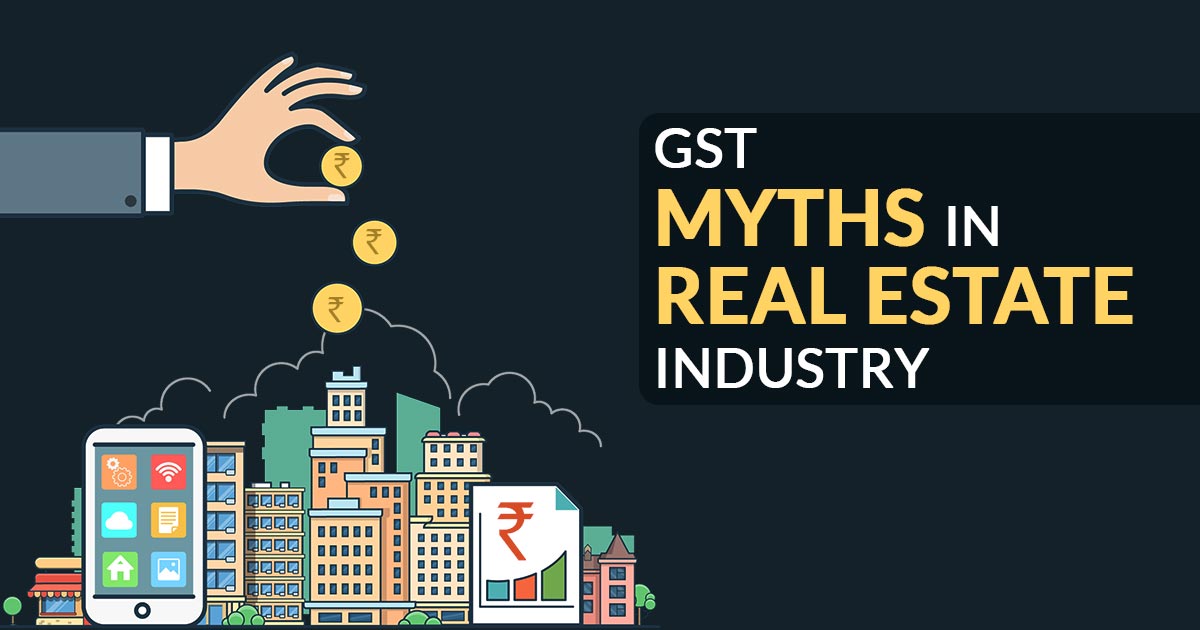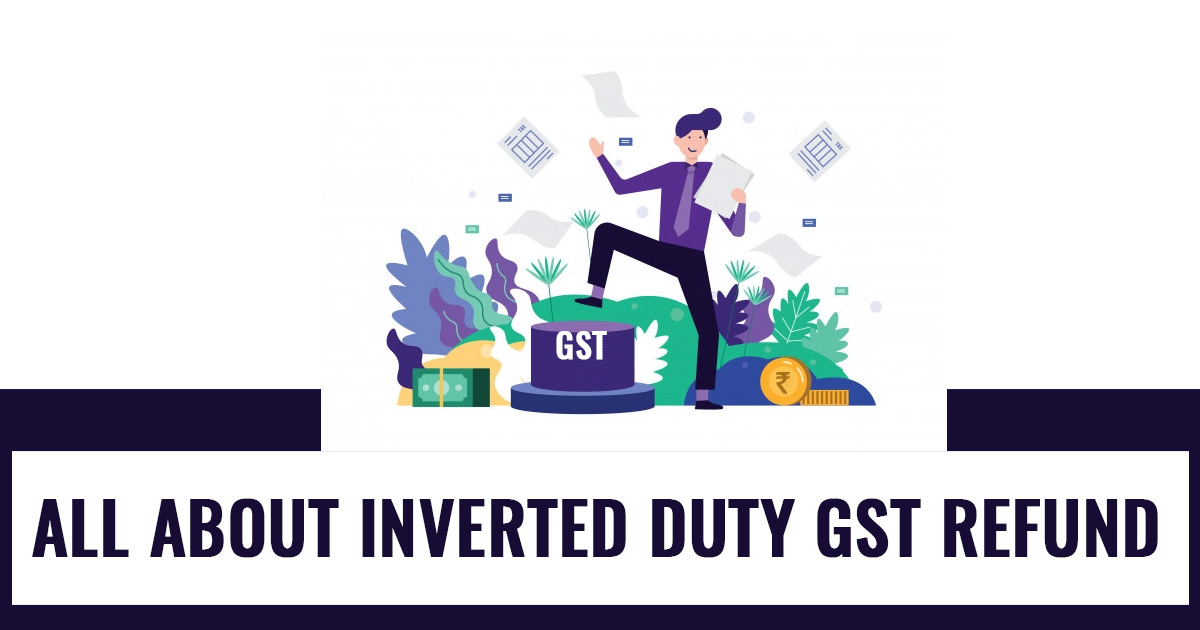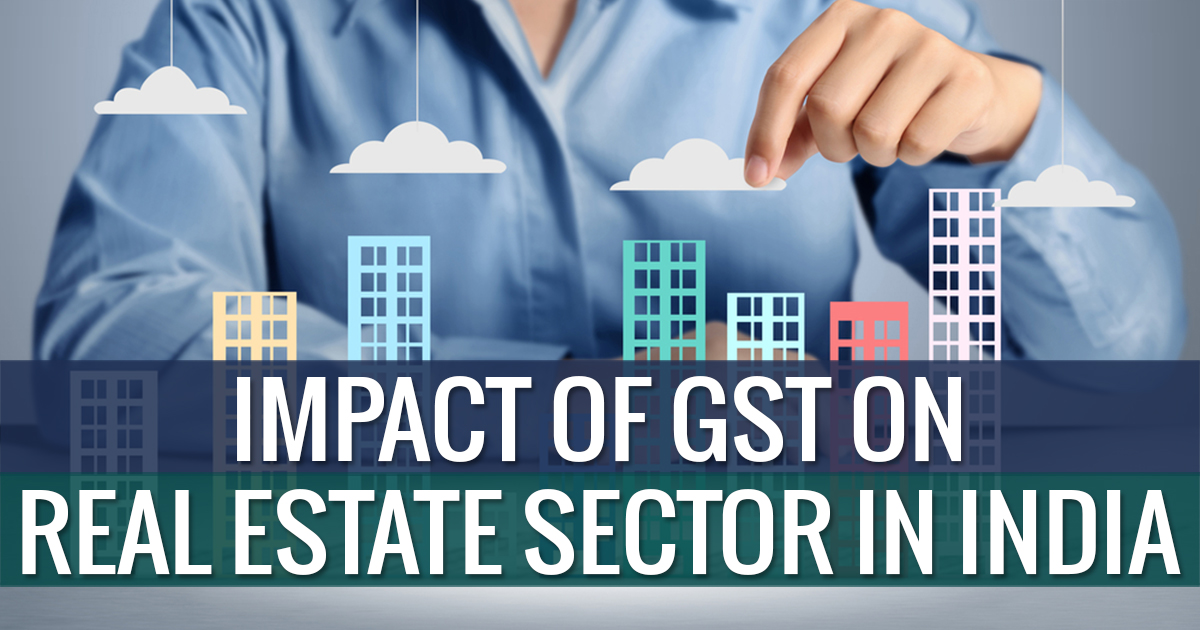
Real estate is a never-ending option for investment and thousands of people every year invest in residential properties for a good return. Earlier in the pre GST period, there were multiple taxes applicable such as stamp duty, VAT, service tax, registration charges and that too with different rates for different states every time.
However after the GST came into existence, there were multiple doubts and queries that started to rise up and now there are some solid doubts in the minds of investors and homebuyers regarding the GST applicability.
Here we would be clearing such doubts for all those people who are concerned right now with the property-related transactions or who are about to purchase any property.
1 Doubt – Residential Properties are Treated the Same in the GST
There are dozens of factors on the residential property that would decide the GST applicability on it, such as, affordable non-affordable housing scheme, construction phase, project type i.e. real estate project or the residential real estate project and also the location of the project.
Currently, the government is blindfolded in the terms of GST applicability as per the location as the person buying a property in Delhi or buying it in any village will have to pay one-third of GST from the total value of the property. This applicability seems very disproportionate and needs a quick solution. Also, affordable housing that attracts a lesser GST rate has much more impact than the luxury housing segment.
2 Doubt – There are Clear Guidelines on GST Law on Real Estate
This fact is not at all true as almost all the states are following different rules and regulations for real estate which makes it very complex to tackle. The land taxability at one-third of total value along with the developer’s requirement of individual agreements for the land supply and portion of construction.
The refund ineligibility for the developers in the inverted duty structure 
However there are laws as on the area sharing structure, the landowner is entitled to get ITC on the services of construction given by the developer however, no clarification was on the utilization which is now informed by the notification recently.
Any difference in the purchases from the registered and non registered people tracking and to inform the same to the GST portal.
3 Doubt – GST is Not Applicable on Selling of Plots
The GST regulations have removed the applicability of tax on the sale of plots and even whole buildings when the completion certificate has been issued or the first occupant has entered it. But if a small plot has even the slightest of construction will be having GST applicable.
While the applicability of GST on two-thirds of the value of land is excessive as the construction on it will be far less valuable than land and this has a very pressurizing impact on the person related to the transaction.
4 – Developers are Not Interested to Share any Refundable to Buyers
Developers have been in dilemma to the remaining corpus of the fund after the transaction and process of the sales as the government has not cleared till now regarding how the benefits of the sales can be passed on to the buyers. The real estate sector 
The under-construction projects are also challenging to estimate the benefit which can be passed on, however, the National Anti-Profiteering Authority does imply some process but that is also not clear to date.
5 Doubt – The Affordable Housing Scheme is Cheap by all Means
A total carpet area of not more than 60 square metres in metropolitan and 90 sq metres in non-metro or towns with no more than INR 45 lakhs of the value of the property is deemed as affordable in the rules, however, there are dozens of other terms which are non-accessible to the general public in understanding.
6 Doubt – Electricity and Water Fees are Free from GST Under Property Maintenance
Currently, the flat owners are liable to pay 18% GST on the maintenance charges above INR 7500 and the same 18% is for the housing society which is taking the amount. Therefore the conditions are clear as being INR 7500 to be taxed at 18%. To be more clear the tax is applicable on the whole amount and not on only exceeding INR 7500. The compliance is to be resolved soon as it is always complex to charge GST on multiple rates.